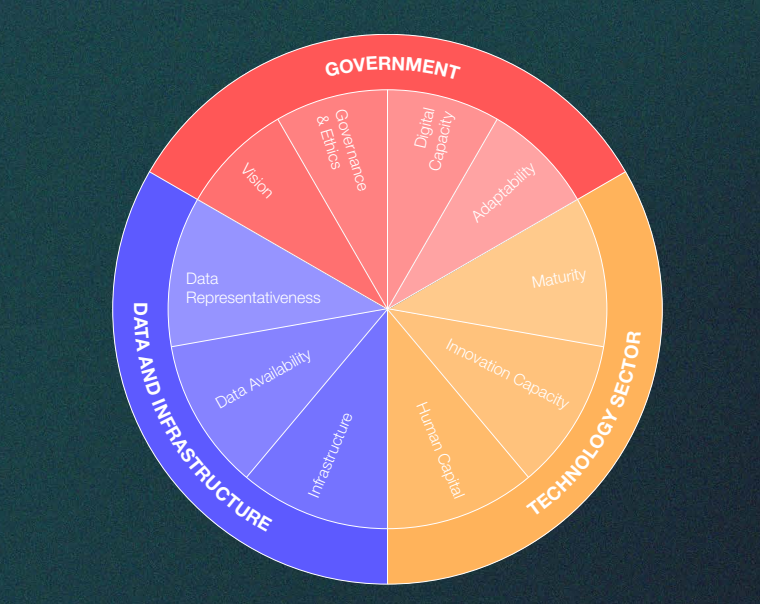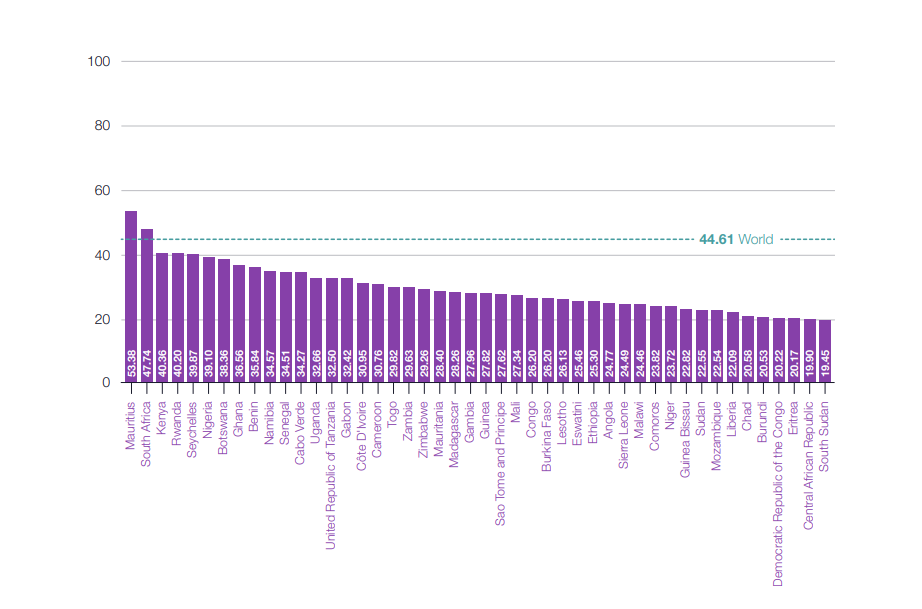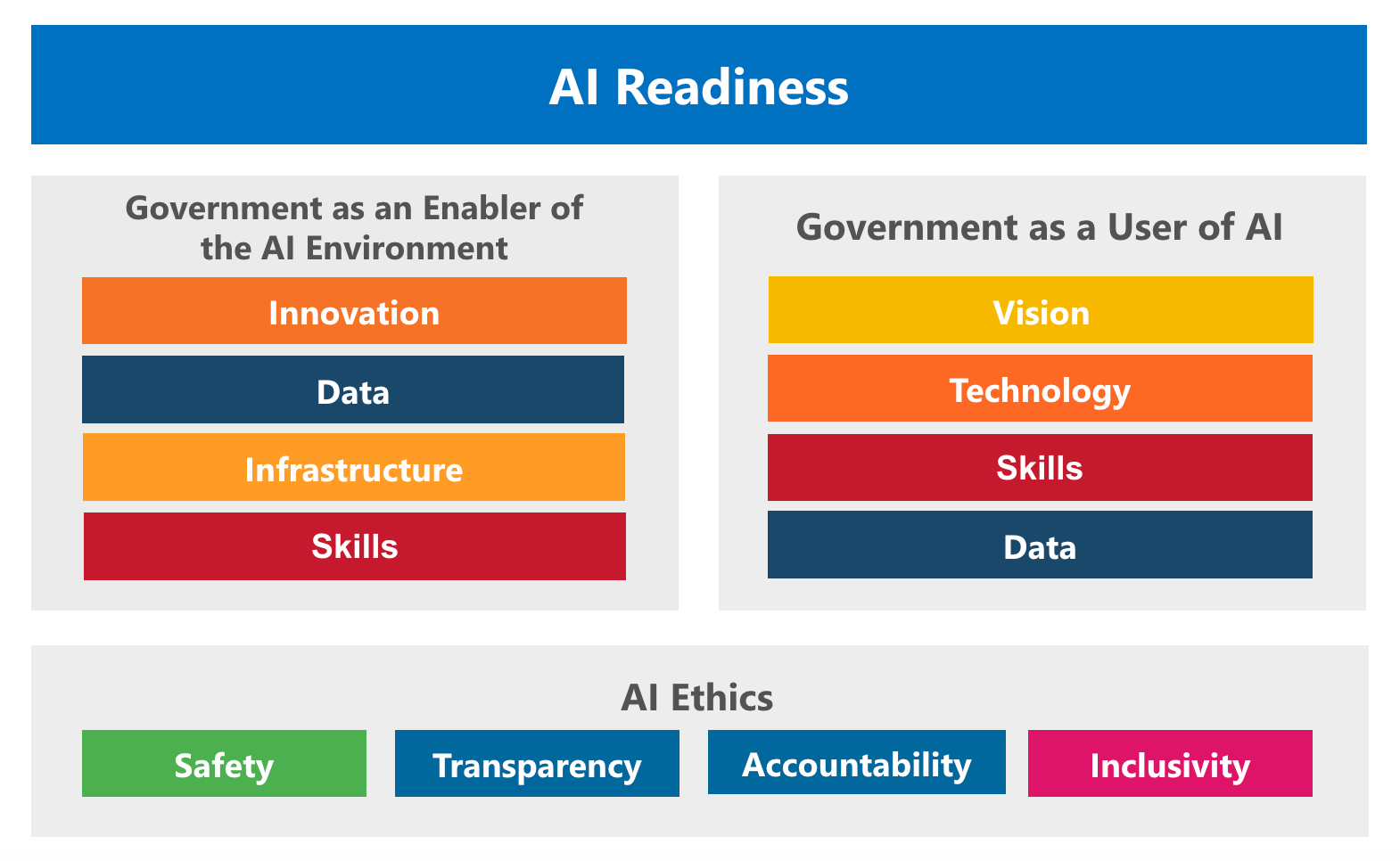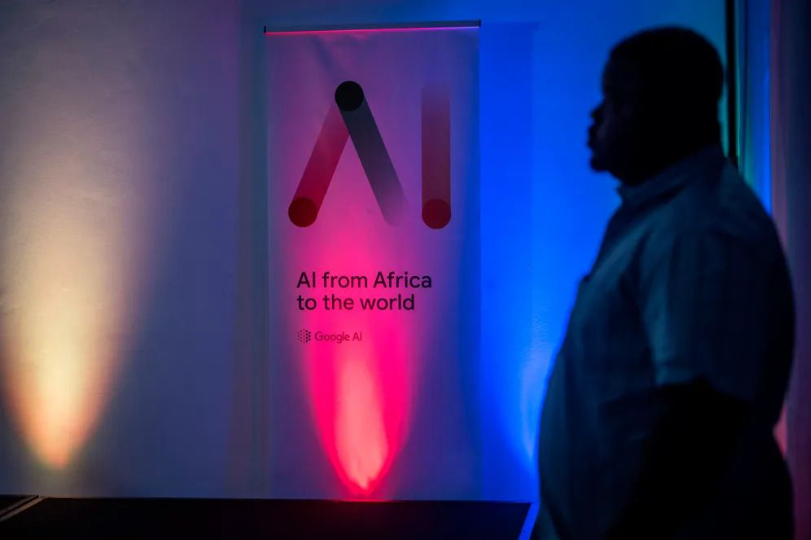Despite the proliferation of artificial intelligence (AI) in Africa being on the rise with governments formulating national strategies to drive the adoption, the readiness of countries on the continent is below the global average.
“The region is overrepresented at the bottom of the ranking spectrum, with 21 out of the 25 lowest scores belonging to Sub-Saharan African countries,” according to the Government AI Readiness Index 2022 by Oxford Insights.

According to the Index, Mauritius is the African government most ready for AI. With its score of 53.38 points out of 100, the country is the 57th most ready country worldwide.
Egypt—which is 65th globally—is ranked second in Africa, ahead of South Africa, Tunisia, Morocco, Kenya, Rwanda, Seychelles, and Nigeria. Botswana ends the list of the top 10 African countries ready for AI.
Mauritius and Egypt scored high on the “government” pillar due to the existence of a national AI strategy, the development of online services, the existence of data protection and privacy laws, and the implementation of cyber security strategies.
“Mauritius approach to AI is fantastic! They have a clear strategy as to what they want to achieve. They are also bringing the private sector and academia with them. They have a council with all of these sectors on them,” says Richard Stirling, Oxford Insights CEO. “They are investing in the skills and they are thinking about how that can be transferred back into the industry. That’s amazing and that’s the perfect playbook.”
In Nigeria, the government is still working on its AI strategy. However, the National Centre for Artificial Intelligence and Robotics was launched in the country in 2020. The Centre is designed to promote research and development on emerging technologies and their practical application in areas of Nigerian national interest.
South Africa, Tunisia and Morocco, Kenya, Seychelles, Botswana, and Nigeria scored highest in the “data & infrastructure” pillar, which includes, among other things, the state of telecommunications infrastructure, the number of cloud service providers computing, the quality of broadband internet access, the cost of accessing the internet and the availability of open government data.
While broadband coverage has increased in recent years, the majority of people in the region still lack access to mobile internet, due in part to high device and data costs. This is an obvious barrier to AI readiness in the region.
Related Article: How Nigeria’s $428 million ICT backbone project is enabling rural financial inclusion
However, no African country scored well (50 points or more out of 100) in the “technology sector” pillar, which includes criteria such as the number of unicorns, government spending on software, the number of STEM (science, technology, engineering, and mathematics) graduates, spending on research and development, the level of digital skills, and the quality of higher education in engineering and technology.
Generally, Sub-Saharan scored 29.38 points in the average score. Countries in Africa had 38.59; both are below the global average score of 44.61 points.

Major AI policy developments in Africa
According to Wendy Trott, a regional policy expert at Oxford Insights, countries in Sub-Saharan Africa are taking “crucial enabling steps” to push out data protection which is relevant for AI proliferation.
In June, the Nigerian president, Bola Tinubu assented to the Nigeria Data Protection Act 2023. The law will establish a new data protection body as well as a regulatory framework for data protection in the country.
Last year, the African Union’s Executive Council endorsed a Data Policy Framework to provide a regional framework that includes the “promotion of research, development, and innovation in various data-based areas, including big data analytics, artificial intelligence, quantum computing, and blockchain”.
“The African Union (AU) is also playing an influential role as a multilateral forum for collaboration and a potential generator of model legislation on AI and data protection,” according to the report. “The AU has a working group on AI that is in the process of consulting with experts on a regional AI strategy, and the AU recently worked with Smart Africa to publish the AI for Africa Blueprint, which outlines the opportunities and challenges of AI in the region as well as proposing key principles and pillars for inclusion in any regional AI strategy.”
However, Trott said that “data protection authorities in most countries are not given the necessary resources to enforce these laws. There is also a lack of comprehensive follow-up regulation regarding these laws as well as a lack of regulation on the specific risks of AI”.

VC funding for AI in Africa plunged 98% in H1 2023
Meanwhile, despite the proliferation of AI which can be traced to the launch of generative AIs like ChatGPT, funding for the sector in Africa has plummeted 98% compared to H1 2022, according to BD Funding Tracker. Globally, AI funding plunged 43% in Q1 2023, compared to the same period in the previous year, CB Insights says it's the lowest quarterly total since Q1 2018.
Although the current VC funding in the sector reflects a lag, AI could expand the African economy by $1.5 trillion by 2030—about 50% of its current GDP—if it is able to take over 10% of the global AI market, according to a report by Africa Regional Science, Technology and Innovation Forum.
Earlier this year, German-based biotech company, BioNTech acquired Tunis AI startup InstaDeep for $680 million. The transaction involved an upfront payment of cash and unspecified BioNTech shares worth £362 million, and a balance of £200 million payable based on InstaDeep’s future performance.
This deal can be described as an outlier. “While the African tech ecosystem is rapidly evolving, investment in AI startups is still in its infancy,” says Monalisa Agbata, an emerging technology analyst.
The AI skill gap in Africa
Sub-Saharan Africa scored below average on the technology pillar which involves human capacity, innovation capacity, and maturity. This shows a talent gap when it comes to the development of AI in the region.
However, efforts are being made. In 2019, Senegal launched the first AI programming school in West Africa opened in Dakar. The inaugural class enrolled at the Dakar Institute of Technology attracting students from around the continent.
The following year, Microsoft partnered with the Central University of Technology, Free State to introduce its AI University Programme to address the demand for Artificial Intelligence skills in South Africa.
The programme — developed by Microsoft and delivered by its partner Gijima — teaches young multi-disciplined graduates with limited or no work experience to explore, transform, model, and visualise data, as well as to create the next generation of intelligent solutions.
Recently, the Nigerian government conducted training for AI developers in collaboration with the Google Developers Group. The training which is in its 10th cohort has impacted about 1200 Nigerians, according to the National Information Technology Development Agency (NITDA). The agency says it intends to develop AI developers' communities across the country.
According to Hajia Hadiza Umar, NITDA's Head of Corporate and External Relations, “This is envisaged to reposition Nigeria's economy by leveraging the opportunities that digital technologies, including the development, use, and adoption of AI provide by proactively facilitating the development of Nigeria into a sustainable digital economy.”
“Sub-Saharan Africa’s lack of digitalisation and slower adoption of AI technology means that strong regulations and investment in digital literacy at this early stage have the potential to powerfully shape the sector in years to come,” Oxford Insights said in the report.
Get passive updates on African tech & startups
View and choose the stories to interact with on our WhatsApp Channel
Explore




